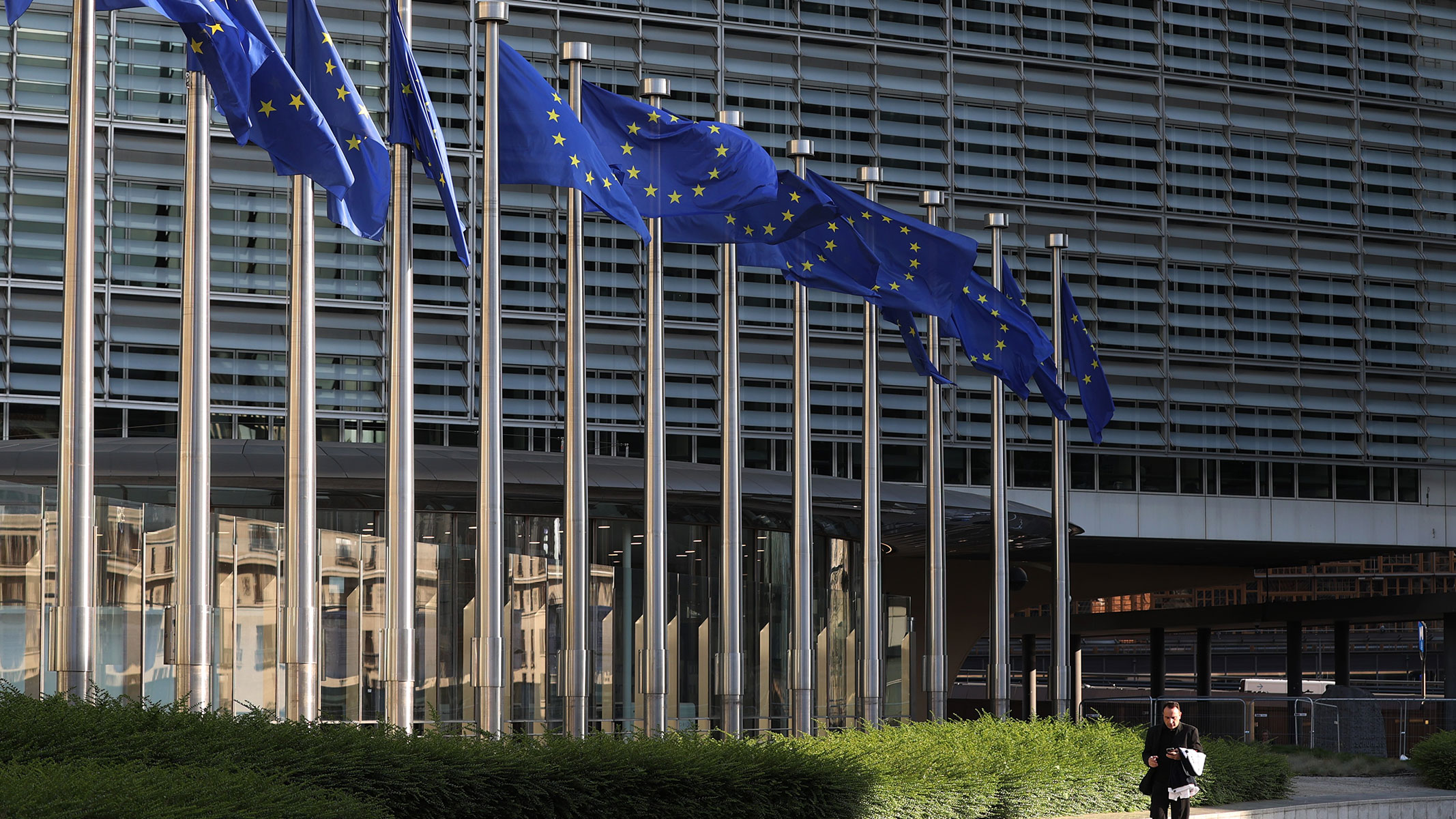
President Donald Trump announced in a late August Truth Social post that all countries with “digital taxes, legislation, rules, or regulations” will face “substantial additional tariffs” from the United States until those barriers are removed. Though Trump did not mention the European Union by name, the EU is his clear target.
The message appeared just weeks after the U.S. and EU signed a much-anticipated joint statement promising to “enhance opportunities for technical cooperation” on “identifying and developing standards for the transatlantic marketplace in key sectors of mutual interest.” While some free traders took a victory lap, they should have known that the détente would be fleeting when the most pressing issues in the trade relationship were left unresolved.
Consider that even as the U.S. and EU negotiated terms, European technology protectionism was escalating. In June, a month before the parties reached their first informal agreement, the European Union drafted a proposal for the EU Space Act, a sprawling legislative initiative that Europe touted as “a harmoni[z]ed framework for space activities across the Union.” Americans rightly read it as targeting American companies.
In Article 73, for instance, the Act coins the term “giga-constellation” to subject any set of 1,000 or more operational spacecraft to special regulatory burdens. Such infrastructure—mostly satellites—can be used to deliver high-speed Internet service, aid in weather forecasting, and propel scientific discovery. The 1,000 figure seems arbitrary, but it is intended to impose expensive compliance burdens on American businesses.
The United States dominates low-earth orbit satellite innovation. Starlink already operates 8,000 satellites, and Amazon’s Project Kuiper intends to launch more than 3,200 advanced low-earth orbit satellites into space—well exceeding the EU’s giga-constellation threshold. Meantime, Europe’s OneWeb, which once dreamed of launching thousands of satellites into space, has resigned itself to the reality that it may “top out at under 1,000.” And Europe’s IRIS constellation is expected to include less than 290 satellites.
It’s not just space. The European Digital Markets Act and the similarly named Digital Services Act both push a “big is bad” doctrine to punish American firms that have tested their mettle in the global marketplace. Europe’s posture may be even better described as “American tech is bad.” American firms are winning market share and filling Europe’s tech void.
Though the EU says its regulations apply equally to everyone, five of the six companies that fit the original definition of a “gatekeeper” in the Digital Markets Act were based in the United States: Alphabet, Amazon, Apple, Meta, and Microsoft. It’s the same protectionist philosophy that Europe applies to space when it cherry-picks definitional thresholds to target American firms.
The European technology protectionism playbook is consistent: implement broad regulations that appear universal but spare Europe when it cannot muster the technological strength to compete on the world stage. The approach allows Europe to pose as a rules-based regulator while clinging to exemptions at the World Trade Organization.
All this helps explain why Trump is threatening additional tariffs. At this point, it is unclear whether technology regulations will be resolved in ongoing trade negotiations with Europe. Settling on terms would be in the best interest of all involved. Europeans, after all, bear the brunt of their governments’ protectionist decisions even though American innovators are the targets.
Though it claims that its tech regulations are nonnegotiable, the EU has already backtracked once, when it capitulated to lopsided tariff rates. Rather than impose additional tariffs immediately, the Trump administration should reenter trade negotiations and focus the talks on technology protectionism in an effort to lower barriers on both sides of the Atlantic. Only under such an approach would everybody win.
Photo by Zhao Dingzhe/Xinhua via Getty Images
City Journal is a publication of the Manhattan Institute for Policy Research (MI), a leading free-market think tank. Are you interested in supporting the magazine? As a 501(c)(3) nonprofit, donations in support of MI and City Journal are fully tax-deductible as provided by law (EIN #13-2912529).













